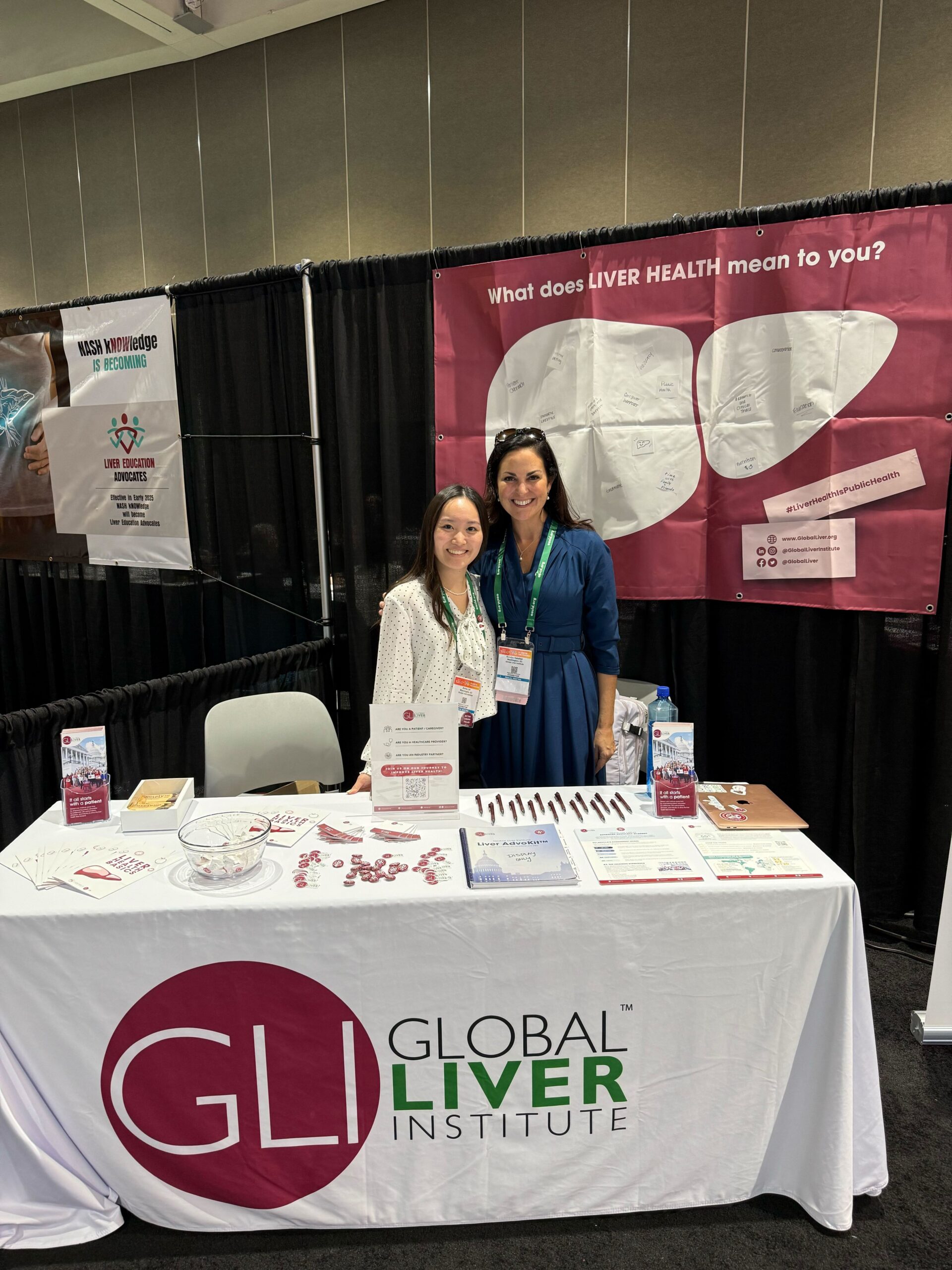
Can Blood Tests Help Predict Liver Transplant Outcomes?
As we conclude this year, the Pediatric and Rare Liver Diseases team is reflecting on the incredible progress made by our council and patient organizations in 2024. We were so proud to see so many of our council members and patients across disease states represented throughout AASLD’s The Liver Meeting™ in San Diego. The strength of the patient voices reinforced the importance of our collective work and the role that patient advocacy plays in shaping the future of rare liver disease care. It’s a reminder that our work isn’t just important—it’s vital, and it’s making a difference!
Kristin Hatcher, our pediatric and rare liver diseases program director, said it best: “What we’ve accomplished this year is just the beginning. The energy we’ve seen at every event, the conversations we’ve had, and the progress we’ve made together are just a taste of what’s to come in 2025. We are less rare together!”
Looking ahead, we are beyond excited for what’s to come in 2025. We’re going to keep the momentum going, building even more programming, fostering deeper collaborations, and keeping the patient-centered approach at the heart of everything we do. From new research to groundbreaking initiatives, we can’t wait to see the powerful content and incredible ideas that will emerge from our collective efforts.
With love,
Kristin Hatcher and Anna Lin


Can Blood Tests Help Predict Liver Transplant Outcomes for Biliary Atresia?
Dr. Ahmad Anouti, a member of our Pediatric and Rare Liver Diseases Council, recently shared important findings at the 2024 NASPGHAN meeting that could improve how we understand and treat biliary atresia (BA), a rare liver disease. His research, based on over 30 studies, highlights how blood tests can help predict long-term liver health for children with BA. One key finding is that lower levels of total bile acids (TBA) are linked to better liver survival. These findings could help doctors make more accurate predictions about a child’s health and treatment needs.
Bringing Improved Diagnostic Tools to Latin America with Patient-Focused Efforts
The Collaborative for Rare Diseases in the Caribbean and Latin America (CEPCAL), founded in 2020, is improving diagnosis of rare diseases in Latin America. Currently, newborn screening and genetic diagnostic tools for adults are limited and expensive in many parts of Latin America, but CEPCAL is working to find more equitable solutions for diagnosing rare diseases. We want to highlight the important work being done by CEPCAL, including their efforts to expand Mexico’s rare disease registry and create regional patient registries across Latin America! These initiatives are a crucial step toward improving diagnostic access across the region.
New FDA Grant for Research in PSC
We’re excited to see the growing investments in rare liver disease research, highlighted by FDA’s $250,000 grant under the FDA’s 2024 Drug Development Tool (DDT) Research Grant. In collaboration with the Consortium of Autoimmune Liver Diseases (CALiD), this funding supports Perspectum’s work to evaluate of a non-invasive biomarker for primary sclerosing cholangitis (PSC), a progressive liver disease that affects over 36,000 people in the US. As there are no FDA therapies available for PSC, a reliable biomarker could accelerate and facilitate the development of treatments.
Bexotegrast Shows Promise in Latest Trial for Primary Sclerosing Cholangitis
Exciting progress was shared at the AASLD Liver Meeting in November, as the Phase 2 trial of bexotegrast, a potential new treatment for PSC, showed promising results. Patients who took bexotegrast experienced fewer symptoms like itching and bile duct inflammation compared to those on a placebo. The drug also helped improve liver function, suggesting it could slow disease progression and offer better disease management for PSC patients. For those living with PSC, these results offer hope. While further studies are needed for market approval, this early data shows progress towards powerful treatment options.
Elafibranor is Now Available for Use on the National Health Service (NHS)
Following its recent marketing authorization in the UK, elafibranor (Iqirvo®) has now been recommended and added to the NHS list of covered therapies for eligible patients with primary biliary cholangitis (PBC). This decision ensures access to the treatment at no cost or a minimal copay, addressing a critical equity issue for patients who may not have private insurance or the financial means to afford this medication.
PBC, a rare and progressive liver condition, disproportionately affects women and is often diagnosed late, leaving patients with few treatment options. Elafibranor, designed to reduce liver inflammation, scarring, and symptoms such as itching, has demonstrated significant benefits in clinical trials. Its inclusion in the NHS underscores the importance of improving access to innovative therapies for rare diseases.
Linerixibat Shows Promise for Treating Persistent Itch in PBC
GSK recently announced positive results from the GLISTEN Phase 3 clinical trial, which evaluated linerixibat, an investigational drug designed to target the root cause of itching in PBC. Over 24 weeks, participants taking linerixibat experienced a significant reduction in itch compared to those on a placebo. While there are some treatments available for PBC-related itching, many patients struggle with tolerability or find that current options just aren’t enough. Linerixibat could be the first therapy specifically developed to address the unrelenting itch tied to PBC, potentially meeting a huge unmet need in the community.
New Updates from the FDA Allows Obeticholic Acid To Remain Available for Patients Pending Further Clinical Studies
The FDA has issued a Complete Response Letter (CRL) regarding the supplemental New Drug Application (sNDA) for obeticholic acid (OCALIVA®, OCA) in primary biliary cholangitis (PBC). While the sNDA has not been approved at this time, it’s significant that OCA will remain available to patients under its accelerated approval status. This reflects the FDA’s careful approach to ensuring treatments meet rigorous safety and efficacy standards without abruptly removing access to a critical therapy—especially one that has been the sole option for many PBC patients for years.
Upcoming Events
- Dec 11, 2024 – Webinar: Gaps and Opportunities: Family Caregiver Programs in U.S. Transplant Centers Hosted by National Alliance for Caregiving (NAC)
Have a safe and happy holiday from all of us at GLI!
For more information about the Pediatric and Rare Liver Diseases Council or to learn more about joining, please visit our webpage or email pedsrare@globalliver.org.
